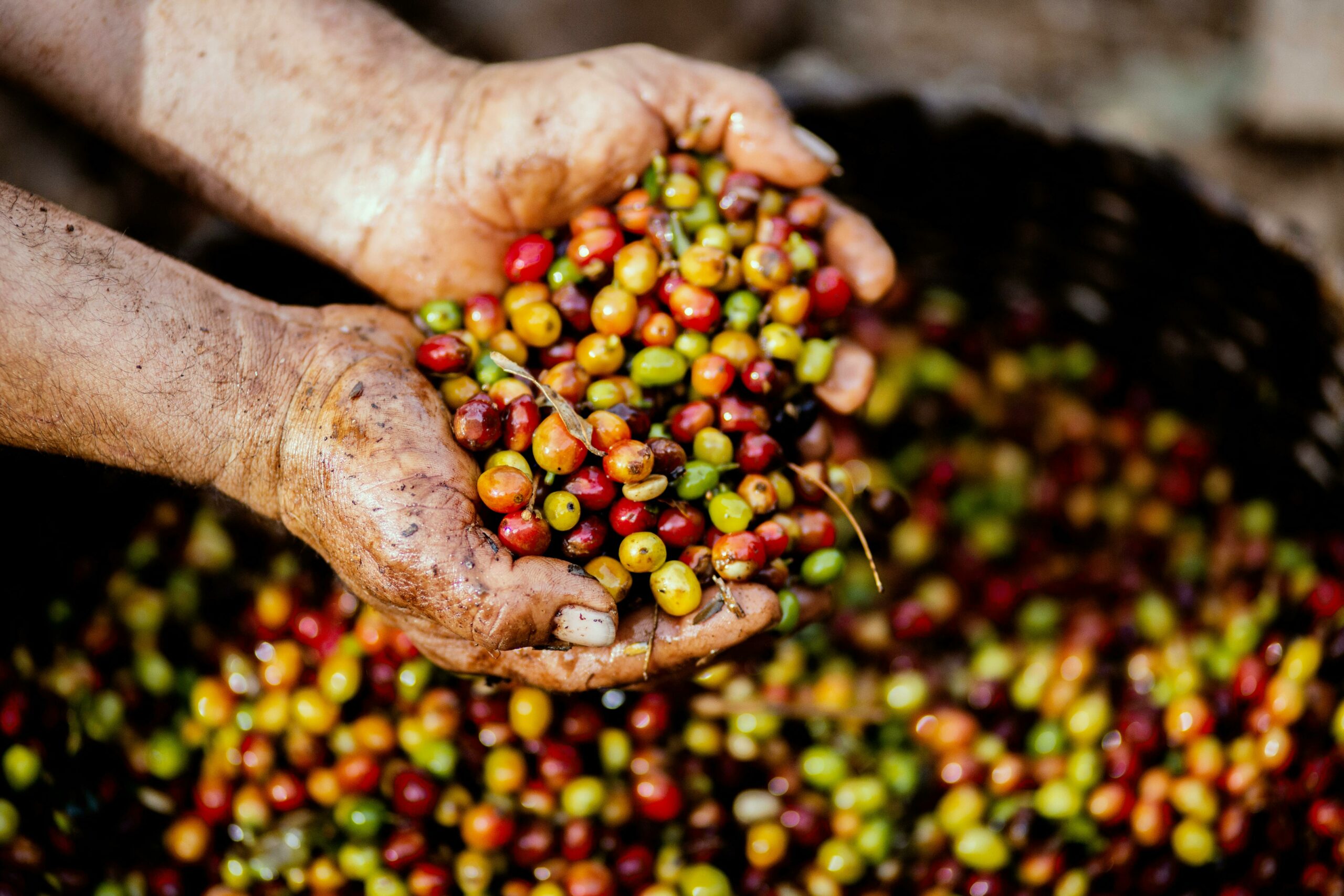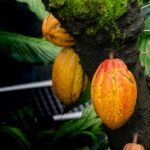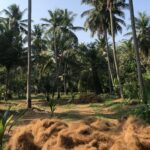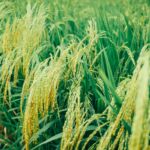Introduction and context
Coffee is more than just a beverage; with over 2.25 billion cups of coffee consumed daily, it is one of the most widely consumed drinks in the world and one of the most traded agricultural commodities. The largest coffee-producing nations—Brazil, Vietnam, and Colombia—are responsible for 63% of the global supply, while major consumers such as the European Union and the United States dominate the market.
As global consumption patterns shift, coffee is experiencing a transformation in demand. Emerging economies are seeing a surge in consumption, while in developed nations, an increasing fascination with specialty coffee is driving further growth. This evolution in consumer preferences is reshaping the sector, creating new opportunities but also adding complexity to an already challenged industry, particularly for the millions of smallholder farmers who rely on it for their livelihood.
Coffee is predominantly grown in a region known as the “bean belt,” which stretches across the tropics. The flavor of coffee is intricately tied to climatic conditions—factors like temperature, rainfall, and altitude are critical in determining the quality and taste profile of the beans. The industry, however, is highly vulnerable to climate change. Shifting weather patterns, rising temperatures, and increased frequency of extreme weather events are already threatening coffee yields and quality.
Behind Your Brew : The Complex World of Coffee Varieties
Coffee cultivation is largely dependent on two species: Coffea arabica (Arabica) and Coffea canephora (Robusta). Arabica, renowned for its smooth and delicate flavor, constitutes around 60-70% of the world’s coffee production but has low tolerance to diseases and climate fluctuations. Robusta, on the other hand, is cheaper, more robust, and adaptable, making it easier to cultivate under varying environmental conditions. However, it is often considered inferior in taste.
Breeding new coffee varieties that are both climate-resilient and flavorful is a slow and challenging process. Researchers are now looking back at traditional coffee species to breed new varieties better adapted to changing conditions, but this approach requires significant time and resources.
Given the importance of flavor to coffee’s commercial success, finding solutions that balance resilience with quality is essential for the long-term sustainability of the industry.



Figure 2 : Arabica versus Robusta – https://piogastrobistro.com/pratikbilgiler/arabica-versus-robusta/
The future of coffee, particularly Arabica, is at risk. A 2016 study by The Climate Institute suggests that by 2050, half of the land currently used for coffee cultivation could become unsuitable due to rising temperatures and changing rainfall patterns. With coffee farmers already facing increasing unpredictability in yields, the need for climate adaptation measures is more pressing than ever.
Smallholder farmers, who represent the backbone of global coffee production, are particularly vulnerable to these shifts. They often lack the financial resources, access to technology, and institutional support necessary to effectively adapt. Furthermore, recurrent market imbalances and asymmetric income distribution (at different levels of the supply chain) exacerbate the economic pressures these farmers face, leaving them with little room to implement sustainable practices.
Social Dynamics in Coffee Production
Smallholder coffee farmers, who produce around 60% of the world’s coffee, often face significant disadvantages in the supply chain. With limited access to resources like finance, technology, and infrastructure, they struggle to negotiate fair wages and secure decent working conditions. This is especially prevalent in regions with widespread labor exploitation, trapping many farmers in cycles of poverty.
The intensive use of pesticides and fertilizers in Vietnam’s coffee sector has significant financial and health impacts on smallholder farmers. The over-reliance on chemical inputs to maintain high yields is causing long-term soil degradation, increasing the need for even more fertilizers, which adds to farmers’ financial burdens. The rising costs of these inputs, combined with fluctuating coffee prices, make it difficult for farmers to sustain profitable operations. Beyond the economic strain, the excessive use of pesticides poses serious health risks due to chemical exposure, which further undermine the wellbeing of farming communities.
Gender inequality adds to these challenges, as women—who account for up to 70% of labor in coffee production—often lack access to land ownership, financial resources, and leadership roles. A study by the International Women’s Coffee Alliance highlights the barriers women face in receiving fair compensation or decision-making power.
Additionally, smallholders frequently lack access to education and training on sustainable farming practices, making it difficult for them to adapt to evolving market demands for higher quality and sustainability. As consumer demand grows for ethically sourced coffee, smallholders risk being left behind without adequate support, tools, and market access.
Addressing these social challenges requires more equitable policies, cooperative models, and targeted investment in education to ensure that smallholders benefit from the global coffee market.
Environmental Factors Shaping the Future of Coffee Production
Coffee production is intricately tied to environmental factors, and climate change is making those factors harder to predict. Arabica coffee, which makes up the majority of global production, is particularly sensitive to shifts in temperature and rainfall. As temperatures rise and weather patterns become more erratic, the land suitable for growing Arabica could shrink by as much as 50% by 2050, according to the Intergovernmental Panel on Climate Change (IPCC). Smallholders, who depend on stable weather to produce high-quality beans, are facing increasing uncertainty.
In addition to unpredictable weather, unsustainable farming practices like deforestation and monocropping have led to environmental degradation. These practices deplete soil fertility, reducing the land’s long-term productivity and resilience. The loss of biodiversity also amplifies pest and disease pressures, making it harder for smallholders to maintain productive farms. As these environmental challenges grow, adapting sustainable practices will be essential for securing the future of coffee production and protecting the livelihoods of smallholder farmers.
The Economic Struggles of Coffee Farmers
Smallholder coffee farmers face ongoing financial instability due to the volatile nature of global coffee prices, which fluctuate based on international demand and supply. These sharp price swings leave farmers vulnerable to sudden drops in income, discouraging long-term investments in sustainable practices or crop diversification. The unpredictable financial landscape makes it difficult for farmers to build resilience against market fluctuations.
Additionally, many smallholders lack access to formal financial services, such as credit or insurance, which are essential for investing in infrastructure, purchasing inputs, or recovering from climate-related events. This financial exclusion perpetuates a cycle of poverty, limiting their ability to adapt to challenges and threatening the long-term sustainability of their farms.
We all like a good cup of coffee to kickstart our day so it is no doubt that some collective efforts are already in place.
Mitigating Social Challenges
Cooperative Models
Smallholders can benefit from organizing into cooperatives or farmer groups, which empower them to collectively negotiate better terms and access markets more efficiently. These cooperatives provide bargaining power and better access to services like training and financial support. By working together, farmers can implement sustainable practices and improve their social conditions.
- The Fairtrade Coffee supports cooperatives by guaranteeing a minimum price for coffee and an additional premium for community projects, helping smallholders secure fair wages while promoting social equity.
Training and Capacity Building
Providing smallholders with training on sustainable farming techniques, market strategies, and quality control can significantly improve their productivity and competitiveness. Capacity-building initiatives help farmers adopt best practices for soil management, water conservation, and agroforestry, making their farms more resilient to climate challenges.
- The Coffee and Climate initiativefocuses on educating smallholders on climate-smart agricultural techniques. These training improves yields and reduces the impact of environmental stressors on coffee farms.
Mitigating Environmental Challenges
Agroforestry Systems
Integrating coffee cultivation with trees in agroforestry systems offers significant environmental benefits. Shade-grown coffee protects the plants from excessive heat, maintains soil fertility, and promotes biodiversity. These systems also sequester carbon, reducing the overall environmental footprint of coffee farming.
- In Ethiopia’s Yayu Biosphere Reserve, farmers practice agroforestry by planting shade trees alongside their coffee crops in addition to home gardens with fruits an vegetables for additional sources of income. This approach not only improves resilience to climate change but also helps conserve biodiversity in one of the world’s most important coffee regions.
Diversification and Crop Resilience
Diversifying crops and income streams is a key strategy for building resilience against climate variability. Smallholders can integrate other high-value crops, such as fruit or spices, to reduce reliance on coffee alone. Additionally, planting climate-resilient coffee varieties can help mitigate yield losses.
- Colombia’s Coffee Growers Federation (FNC) works with farmers to develop climate-resilient coffee varieties that can withstand higher temperatures and more erratic rainfall patterns. The FNC also encourages diversification to stabilize incomes.
Mitigating Financial Challenges
Fair Trade and Direct Trade Models
Certifications like Fair Trade offer smallholders stable and higher prices for their coffee, protecting them from market fluctuations. These models also emphasize long-term partnerships between growers and buyers, providing financial security while encouraging environmentally sustainable practices.
- The Fairtrade Coffee network has enabled smallholders in Latin America to secure stable prices and invest in sustainable farming practices, reducing their vulnerability to financial shocks.
Access to Climate Financing
Smallholders need financial resources to invest in climate adaptation measures, such as infrastructure improvements or adopting new farming technologies. Climate financing solutions, including green bonds and impact investment funds, provide the necessary capital for farmers to implement sustainable practices and weather-related risk management.
- Ksapa’s SUTTI (Scale Up Training, Traceability, Impact) initiative helps smallholders access digital tools and financing mechanisms, empowering them to improve traceability and implement sustainable farming practices. By connecting smallholders with financial resources, the initiative supports both environmental and economic resilience. Reach out to Ksapa to learn more about the latest initiative launched in Côte d’Ivoire on various agricultural commodities.
Digital Traceability and the EUDR: Preparing for 2026
With the European Union Deforestation Regulation (EUDR) initially set to take effect in 2025 and potentially postponed to 2026 , traceability has become critical for the coffee sector. This regulation requires companies to ensure that commodities like coffee entering the EU market are not linked to deforestation. For smallholders, digital traceability offers a vital solution to meet these stringent requirements, allowing them to document the origin and environmental impact of their coffee through transparent, verifiable data systems. By providing real-time tracking of coffee’s journey from farm to consumer, digital platforms ensure that producers can meet regulatory standards and continue accessing lucrative markets like the EU.
Without such systems, many smallholders risk losing market access, as non-compliance with the EUDR will prevent their coffee from entering the European market. Digital traceability not only supports regulatory compliance but also empowers farmers to provide proof of sustainable practices, strengthening their position in global supply chains. As 2026 approaches, investing in these technologies is no longer optional but essential for staying competitive and safeguarding livelihoods in the face of stricter sustainability mandates.
Collaborative Solutions and Partnerships: Strengthening Coffee Supply Chains
Collaboration between governments, NGOs, and the private sector is crucial for creating a more sustainable and resilient coffee industry. The Nespresso AAA Sustainable Quality™ Program, active in Latin America and Africa for over two decades, partners with local cooperatives, agronomists, and experts to improve coffee quality while fostering environmental stewardship and better social conditions. Through this initiative, farmers receive technical assistance, water and soil management resources, and access to premium markets that reward sustainable practices.
Nespresso’s collaboration with organizations like the Rainforest Alliance ensures that certified farmers meet rigorous environmental standards. This multi-stakeholder model strengthens smallholders’ farming practices, enhances traceability, and promotes compliance with global sustainability certifications, ultimately boosting both climate resilience and profitability.
Similarly, Ksapa’s SUTTI project in Sri Lanka empowers natural rubber smallholders through training and digital tools, helping them adapt to climate challenges and meet the growing demand for sustainably sourced products.
CONCLUSION
As global demand for coffee continues to rise, it’s essential to recognize the complex challenges faced by smallholder farmers who make our daily cup of coffee possible. Whether it’s the looming impacts of climate change, the struggle for fair wages, or the need to comply with new regulations like the EUDR, the future of coffee depends on our collective action.
Next time you’re asked, “How do you take your coffee?” remember the farmers whose livelihoods depend on how we choose to engage with sustainability. It’s more than just a beverage—it’s a responsibility we share.






